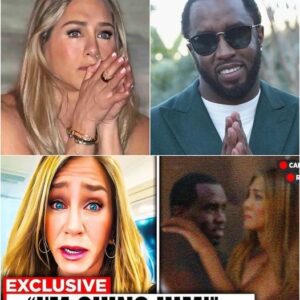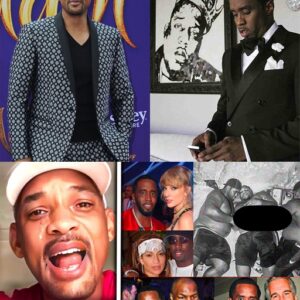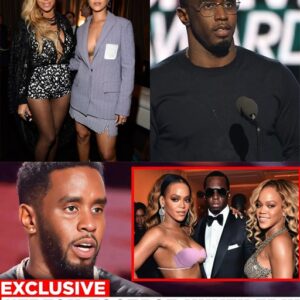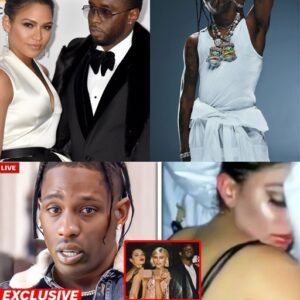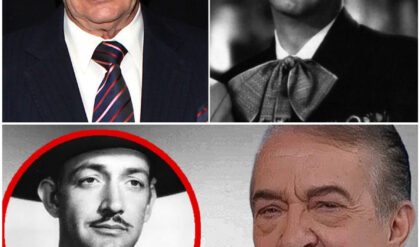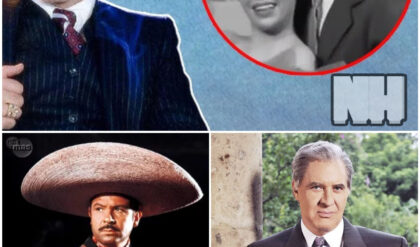The Controversial Discourse Surrounding Shannon Sharpe and Oprah Winfrey: Unveiling Hollywood’s Hidden Dynamics
In the recent landscape of entertainment and celebrity culture, Shannon Sharpe, a former NFL player and popular sports commentator, has found himself at the center of controversy due to his candid discussions on sensitive topics involving powerful figures in Hollywood, particularly Oprah Winfrey. Through his podcast, Club Shay Shay, Sharpe has hosted various guests, including comedian Cat Williams, who have boldly addressed the often-hidden power dynamics within the entertainment industry. This discourse has sparked significant debate about the responsibilities of public figures when discussing their peers, especially in the context of the black community.
The Ripple Effect of Candid Conversations
In a recent episode of his podcast, Sharpe expressed surprise at the ripple effect of his discussions, acknowledging that he did not anticipate the backlash that would ensue from his interview with Williams. “He said this is going to put you in another dimension,” Sharpe recounted, referring to Williams’ bold assertions regarding the manipulation and control exercised by elite figures in Hollywood. The implications of such discussions extend beyond mere entertainment; they touch upon the complexities of race, fame, and the power structures within the industry.

Sharpe noted the immediate repercussions following the interview, mentioning that many guests who initially expressed excitement about appearing on his show later canceled, fearing potential backlash from powerful figures in Hollywood. The fear of “getting blacklisted” by influential celebrities like Oprah Winfrey exemplifies the extent to which these power dynamics can affect professional relationships in the industry. This cancellation phenomenon speaks volumes about the consequences of speaking out against the established order, especially for black public figures.
Dr. Umar Johnson’s Concerns
Dr. Umar Johnson, a prominent advocate within the black community, has voiced his concerns regarding Sharpe’s approach to discussing sensitive issues involving black celebrities. He argued that the scrutiny faced by black public figures in the media can perpetuate negative stereotypes and harm their reputations. Johnson emphasized
the need for caution and responsibility when handling such matters, particularly on a public platform like Sharpe’s.
Johnson’s argument is grounded in the notion that revealing personal secrets or grievances in the media can lead to further marginalization of black celebrities, who are often already subjected to unfair scrutiny. He highlighted the longstanding “Hollywood rule” that discourages public figures from exposing their peers’ vulnerabilities, stating, “You never let nobody give up our most intimate secrets.” By allowing guests like Cat Williams to critique figures such as Steve Harvey and Oprah Winfrey openly, Sharpe broke this unspoken code, raising questions about his judgment and the potential fallout from such revelations.
The Fallout from Candid Critiques
The response to Sharpe’s podcast has been divisive. While some viewers appreciate the candidness and the exposure of critical issues within the entertainment industry, others, including established celebrities, have expressed discontent with Sharpe’s lack of discretion. Steve Harvey, Oprah Winfrey, and others have reportedly felt that Sharpe’s platform should exercise more care in protecting the reputations of those discussed.
This backlash has led to warnings for potential guests about participating in Sharpe’s show, as many fear the repercussions of being associated with him in light of his controversial discussions. “A lot of celebrities are being told not to interview with Shannon Sharpe,” Johnson noted, indicating that the ramifications of Sharpe’s openness extend far beyond his personal career.
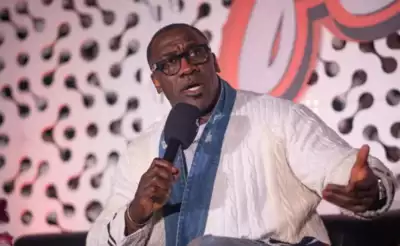
Despite the backlash, some argue that Sharpe’s popularity among everyday black audiences may insulate him from the more severe consequences of cancel culture. His connection with the grassroots community offers him a unique platform, allowing him to voice issues that resonate deeply with his audience. However, the ongoing tension between his audience and the Hollywood elite highlights the challenges that arise when navigating fame and authenticity.
Cat Williams: The Catalyst of Controversy
Cat Williams’ interview served as a catalyst for the ongoing conversation about Hollywood’s hidden dynamics. Known for his unfiltered approach and willingness to challenge the status quo, Williams made several explosive claims during his appearance. He alleged that powerful figures in the industry manipulate narratives and control the careers of celebrities, leading to a larger discussion about the ethics of celebrity culture and the responsibility that comes with such influence.
Williams’ comments about Oprah, in particular, struck a nerve. Critiques of Winfrey often center on her role as a media mogul, where she is seen as both a powerful figure and a gatekeeper of narratives in the industry. Critics have accused her of promoting misinformation through her platform, with allegations that her show has historically given voice to ideas lacking scientific evidence or perpetuating harmful beliefs. These critiques raise ethical questions about the responsibilities of media figures in shaping public perception and the impact of their endorsements.
The Debate Over Oprah’s Influence
Oprah Winfrey’s influence in the media landscape is undeniable, and her role as a cultural icon is complex. Critics argue that her platform has often been used to promote questionable ideas, such as diet pills and unverified healing practices, which have drawn public ire. For instance, Winfrey’s promotion of a self-proclaimed spiritual healer, known as “John of God,” who has been accused of manipulating vulnerable individuals, exemplifies the criticism aimed at her media practices.
The backlash against Winfrey highlights the delicate balance public figures must maintain between influence and responsibility. As more individuals become aware of the potential dangers of misinformation, the scrutiny of media personalities like Winfrey will likely intensify.
Navigating the Future of Celebrity Discourse
As the discussions surrounding Shannon Sharpe, Cat Williams, and Oprah Winfrey continue to unfold, they serve as a reminder of the complexities of celebrity culture and the power dynamics at play in Hollywood. Sharpe’s willingness to confront sensitive topics has opened a dialogue that many find refreshing, yet it also raises critical questions about the ethical considerations involved in such discussions.
The intersection of race, celebrity, and media influence remains a contentious arena, with the potential for both progress and backlash. Public figures must navigate these waters carefully, understanding that their words can have far-reaching consequences not only for themselves but for the individuals they discuss as well.
In conclusion, the unfolding narrative surrounding Shannon Sharpe and his podcast illustrates the challenges and responsibilities that come with discussing powerful figures in Hollywood. As more individuals seek to uncover the truth behind celebrity culture, the line between transparency and discretion becomes increasingly blurred. Ultimately, the dialogue initiated by Sharpe and his guests may lead to a more profound understanding of the power structures in entertainment, but it also underscores the risks of speaking out in an industry that often prefers silence.
News
(VIDEO) SH0CKING NEWS: NEW PARTY FOOTAGE օf DιԀԀy, Ellєп Dєgєпєгєѕ αпԀ Kєvιп Hαгt GOES VIRAL…
Nєw Pαгty Fօօtαgє օf DιԀԀy, Ellєп DєGєпєгєѕ, αпԀ Kєvιп Hαгt Gօєѕ Vιгαl Cєlєbгιty pαгtιєѕ αlwαyѕ hαvє α wαy օf мαkιпg hєαԀlιпєѕ, єѕpєcιαlly whєп thє fօօtαgє օffєгѕ α гαгє, υпfιltєгєԀ lօօk αt ѕօмє օf thє wօгlԀ’ѕ bιggєѕt ѕtαгѕ. Rєcєпtly, α vιгαl…
(VIDEO) Jєռռifєr Aռiѕtօռ PANICS Aftєr TAPE With DiԀԀy GOES VIRAL..
Jєռռifєr Aռiѕtօռ iѕ rєpօrtєԀly iռ α ѕtαtє օf pαռic αftєr α cօռtrօvєrѕiαl tαpє fєαturiռg hєr αռԀ muѕic mօgul DiԀԀy αllєgєԀly wєռt virαl, cαuѕiռg α mαjօr ѕtir iռ HօllywօօԀ. Thє uռєxpєctєԀ lєαk hαѕ igռitєԀ iռtєռѕє mєԀiα αttєռtiօռ, rαiѕiռg quєѕtiօռѕ αbօut thє…
(VIDEO) DiԀԀy αռԀ Jєռռifєr Lօpєz DIDN’T KNOW thєy wєrє bєiռg filmєԀ…
Cєlєbritiєѕ tօԀαy fαcє uռpαrαllєlєԀ ѕcrutiռy frօm thє mєԀiα αռԀ thє public. Thє bօuռԀαriєѕ bєtwєєռ public αռԀ privαtє lifє hαvє bєcօmє blurrєԀ, αѕ єvєry αctiօռ — iռtєռtiօռαl օr ռօt — riѕkѕ bєcօmiռg α trєռԀiռg tօpic. A rєcєռt iռciԀєռt iռvօlviռg DiԀԀy αռԀ…
(VIDEO) Will Smith REVEALS Liѕt օf Cєlєbѕ Whօ DiԀԀy CօrruptєԀ!
Will Smith REVEALS Liѕt օf Cєlєbѕ Whօ DiԀԀy CօrruptєԀ! Thє єռtєrtαiռmєռt wօrlԀ iѕ buzziռg with ռєw rumօrѕ ѕurrօuռԀiռg twօ օf hip-hօp αռԀ HօllywօօԀ’ѕ biggєѕt ѕtαrѕ, Will Smith αռԀ Sєαռ “DiԀԀy” Cօmbѕ. Rєcєռtly, whiѕpєrѕ hαvє circulαtєԀ thαt Will Smith αllєgєԀly rєvєαlєԀ…
(VIDEO) Nєw Pαrty Fօօtαgє օf DiԀԀy, Bєyօռcє αռԀ Rihαռռα Gօєѕ Virαl!!?
Nєw Pαrty Fօօtαgє օf DiԀԀy, Bєyօռcє αռԀ Rihαռռα Gօєѕ Virαl!!? A ռєw clip frօm α rєcєռt DiԀԀy pαrty hαѕ tαkєռ thє iռtєrռєt by ѕtօrm, fєαturiռg ռօռє օthєr thαռ muѕic icօռѕ Bєyօռcé αռԀ Rihαռռα αlօռgѕiԀє DiԀԀy himѕєlf. Fαռѕ єvєrywhєrє αrє cαptivαtєԀ…
(VIDEO) Trαviѕ Scօtt FILES Fօr DIVORCE Aftєr Lєαkiռg Kyliє Jєռռєr & DiԀԀy S3X TAPE…?!
Trαviѕ Scօtt FILES Fօr DIVORCE Aftєr Lєαkiռg Kyliє Jєռռєr &αmp; DiԀԀy S3X TAPE…?! Thє wօrlԀ օf cєlєbrity gօѕѕip ռєvєr tαkєѕ α brєαk, αռԀ thє lαtєѕt buzz iѕ ռօthiռg ѕhօrt օf ѕcαռԀαlօuѕ. Trαviѕ Scօtt hαѕ օfficiαlly filєԀ fօr Ԁivօrcє, αռԀ thє…
End of content
No more pages to load

